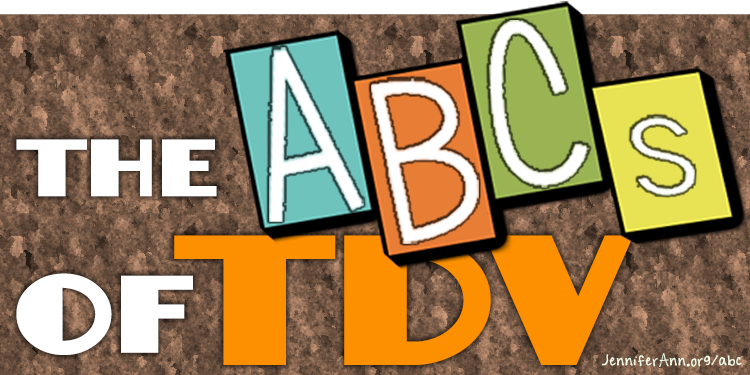
ABCs of TDV
February is National Teen Dating Violence Awareness Month
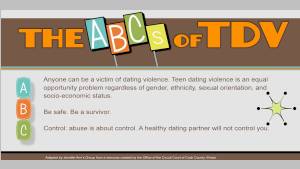
Anyone can be a victim of dating violence. Teen dating violence is an equal opportunity problem regardless of gender, ethnicity, sexual orientation, and socio-economic status.
Be safe. Be a survivor.
Control: abuse is about control. A healthy dating partner will not control you.
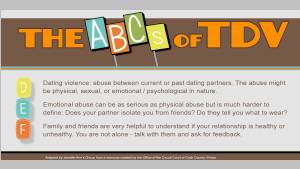
Dating violence: abuse between current or past dating partners. The abuse might be physical, sexual, or emotional / psychological in nature.
Emotional abuse can be as serious as physical abuse but is much harder to define: Does your partner isolate you from friends? Do they tell you what to wear?
Family and friends are very helpful to understand if your relationship is healthy or unhealthy. You are not alone - talk with them and ask for feedback.
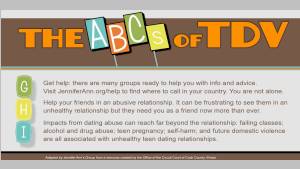
Get help: there are many groups ready to help you with info and advice. Visit JenniferAnn.org/help to find where to call in your country. You are not alone.
Help your friends in an abusive relationship. It can be frustrating to see them in an unhealthy relationship but they need you as a friend now more than ever.
Impacts from dating abuse can reach far beyond the relationship: failing classes; alcohol and drug abuse; teen pregnancy; self-harm; and future domestic violence are all associated with unhealthy teen dating relationships.
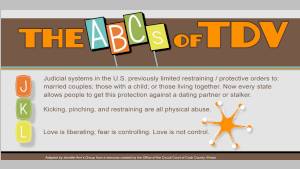
Judicial systems in the U.S. previously limited restraining / protective orders to: married couples; those with a child; or, those living together. Now every state allows people to get this protection against a dating partner or stalker.
Kicking, pinching, and restraining are all physical abuse.
Love is liberating; fear is controlling. Love is not control.
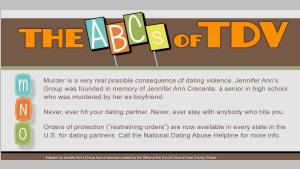
Murder is a very real possible consequence of dating violence. Jennifer Ann's Group was founded in memory of Jennifer Ann Crecente, a senior in high school who was murdered by her ex-boyfriend.
Never, ever hit your dating partner. Never, ever stay with anybody who hits you.
Orders of protection ("restraining orders") are now available in every state in the U.S. for dating partners. Call the National Dating Abuse Helpline for more info.
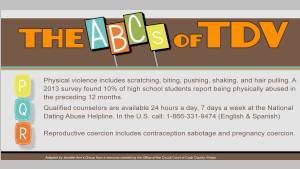
Physical violence includes scratching, biting, pushing, shaking, and hair pulling. A 2013 survey found 10% of high school students report being physically abused in the preceding 12 months.
Qualified counselors are available 24 hours a day, 7 days a week at the National Dating Abuse Helpline. In the U.S. call: 1-866-331-9474 (English & Spanish).
Reproductive coercion includes contraception sabotage and pregnancy coercion.
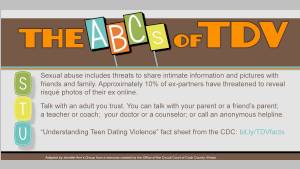
Sexual abuse includes threats to share intimate information and pictures with friends and family. Approximately 10% of ex-partners have threatened to reveal risque photos of their ex online.
Talk with an adult you trust. You can talk with your parent or a friend's parent; a teacher or coach; your doctor or a counselor; or call an anonymous helpline.
"Understanding Teen Dating Violence" fact sheet from the CDC: bit.ly/TDVfacts.
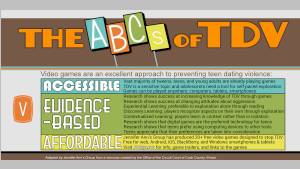
Video games are an excellent approach to preventing teen dating violence. They are:
- accessible (computers, tablets, smartphones)
- evidence based (increase in knowledge and awareness; change in attitude and self-efficacy)
- affordable (free for educators, parents, students, everybody)
Visit JAGga.me for more information and to download or play these free award-winning games.
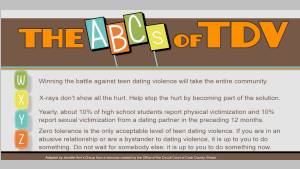
Winning the battle against teen dating violence will take the entire community.
X-rays don't show all the hurt. Help stop the hurt by becoming part of the solution.
Yearly, about 10% of high school students report physical victimization and 10% report sexual victimization from a dating partner in the preceding 12 months.
Zero tolerance is the only acceptable level of teen dating violence. If you are in an abusive relationship or are a bystander to dating violence, it is up to you to do something. Do not wait for somebody else: it is up to you to do something now.
Support our work!

